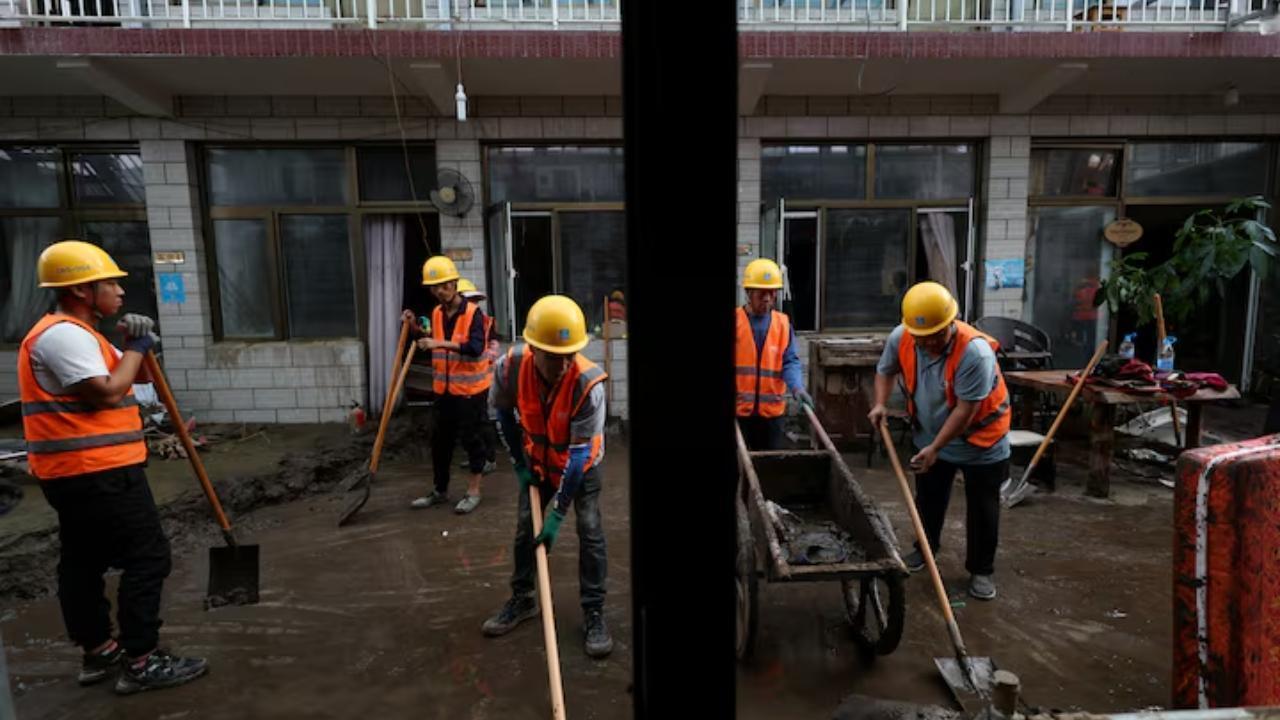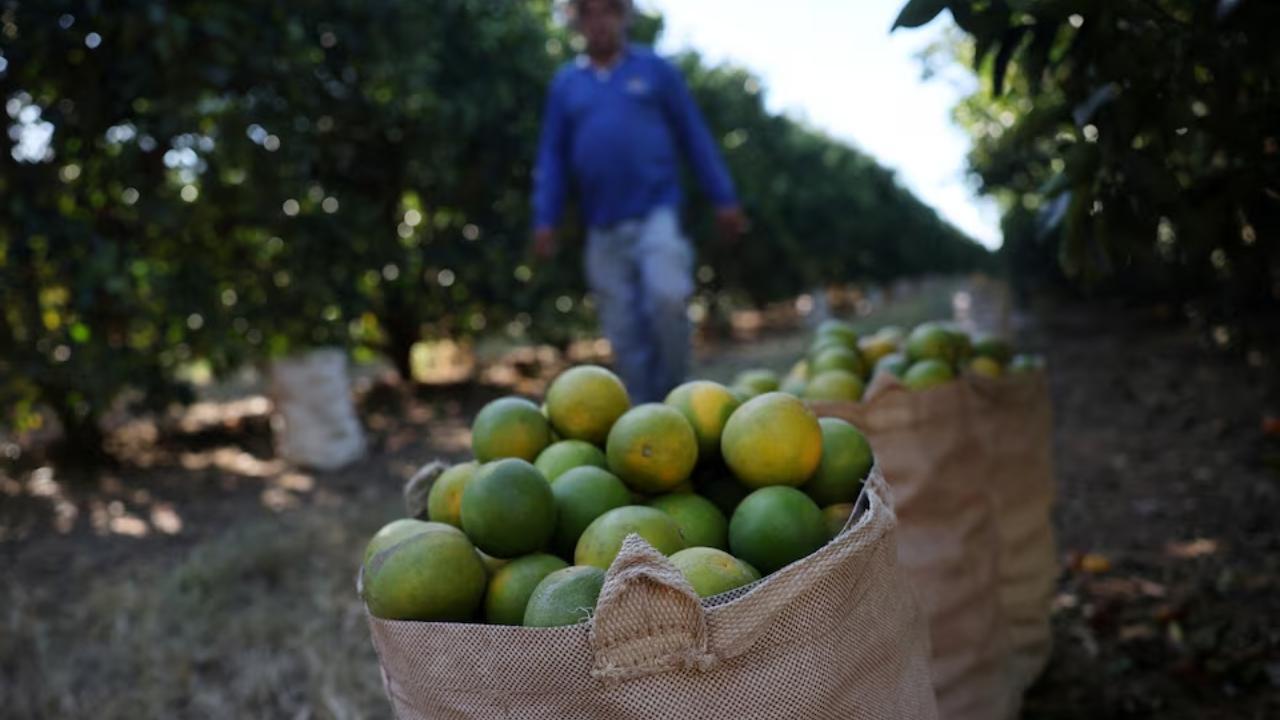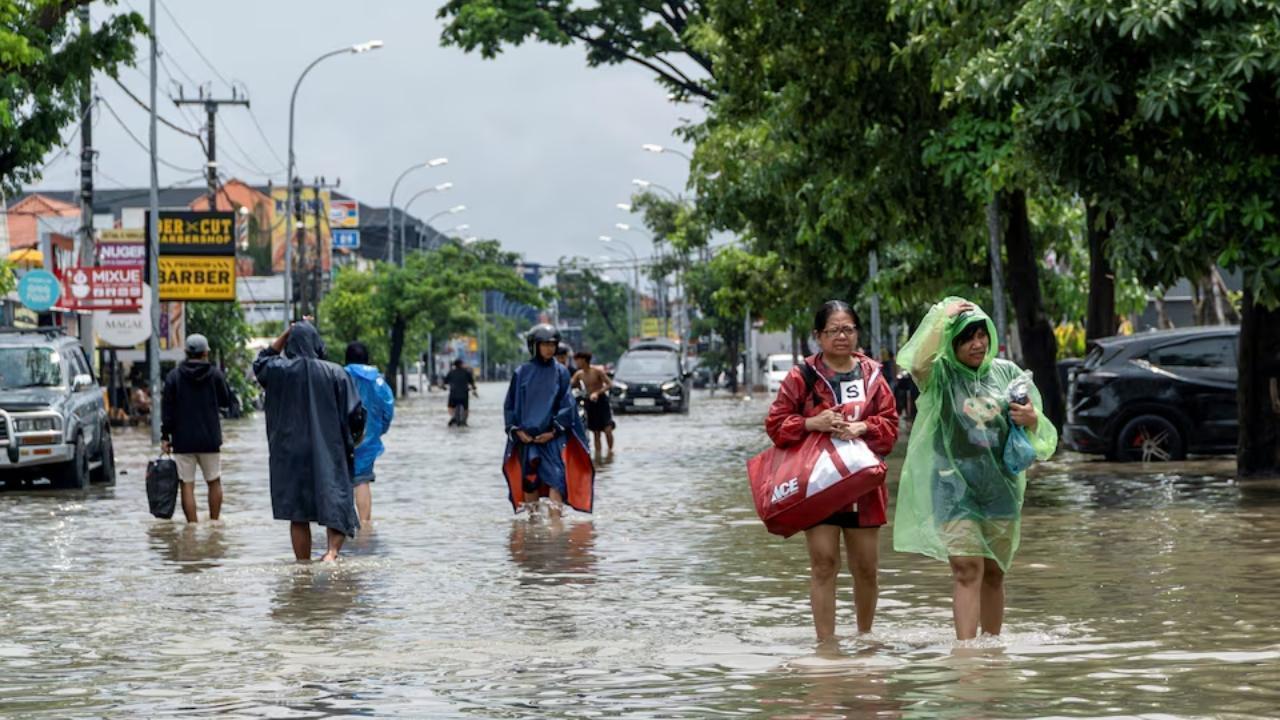
Post by : Monika
Photo: Reuters
The conflict between Israel and Hamas has taken another dangerous turn. An Israeli official has given a strong warning, saying that if Hamas leaders survived a recent air attack in Doha, Qatar, then Israel will make sure to kill them next time. The statement has shaken the region and raised questions about peace efforts that were already in trouble.
This warning came only days after Israeli fighter jets struck Doha, the capital of Qatar, in a bold and unexpected attack. The strike was aimed at killing the top leadership of Hamas, the group that has been fighting Israel for many years.
The Doha airstrike
The Israeli strike on Doha surprised many people because Qatar has not been a direct battlefield in the Israel-Hamas war. For years, Hamas leaders have lived in Qatar, where they run a political office. Qatar has allowed this, not because it supports violence, but because it wanted to help mediate peace between Israel and Hamas.
During the strike, Israel targeted a location where Hamas leaders were believed to be meeting. Hamas quickly announced that its top leaders survived. However, they admitted that some members were killed in the attack. Among the dead was the son of a senior Hamas negotiator. This death has increased anger within Hamas and made the group even more determined to fight back.
The Doha attack was shocking not only because of the deaths, but also because it violated Qatar’s trust. Many Arab countries see Qatar as a safe place for political talks, not a battlefield.
Why the attack matters
The strike in Doha is not just another attack in the ongoing war. It could damage the possibility of peace talks. Qatar has been a key middleman between Israel and Hamas, hosting leaders and passing messages between the two sides. If Qatar decides to stop this role, the chance for a ceasefire may vanish.
That is why many world leaders see this attack as dangerous. Instead of bringing peace closer, it might push it further away.
Israel’s strong warning
After the Doha strike, Israel’s ambassador to the United States, Yechiel Leiter, spoke in Washington at the U.S. Capitol. His words made Israel’s position clear. He said that terrorists around the world are now “on notice.” This means Israel will not hesitate to attack its enemies wherever they are found.
Leiter added that Israel has the right to defend itself from those who plan to harm its citizens. According to him, Hamas leaders cannot hide behind borders or in foreign capitals. If they continue to plan attacks, Israel will strike again.
This warning was seen by many as Israel’s way of saying that no place, not even Doha, is off-limits if it comes to fighting Hamas.
The U.S. reaction
The United States, which is Israel’s closest ally, was quick to respond. The U.S. president spoke with Israel’s prime minister soon after the strike. In that call, he said that targeting Hamas leaders in Qatar was not a wise move. The U.S. is worried that such actions might destroy the delicate peace process and lead to wider war in the Middle East.
While America supports Israel’s right to defend itself, it also wants to avoid actions that make peace harder to achieve. This is why Washington is urging both sides to return to negotiations instead of escalating attacks.
Qatar’s anger and Arab support
Qatar, the country where the strike happened, reacted strongly. Officials there said that they are now thinking about whether they should continue to host Hamas’s political office. For years, Qatar has allowed Hamas to have a base in its capital. This was seen as a way to help manage talks and reduce violence. But after the Israeli strike, Qatar feels that its trust has been broken.
Other Arab countries, including some of Qatar’s neighbors, expressed support for Doha. They criticized Israel for carrying out an attack in a country that has been trying to help peace efforts. For them, this was not only an attack on Hamas but also an attack on diplomacy itself.
Strikes in Yemen
While the Doha strike was making headlines, Israel was also busy in Yemen. Israeli fighter jets attacked the Houthi movement, a group backed by Iran. The Houthis have been fighting against Saudi Arabia for years and have also targeted Israel with missiles and drones.
Israel struck the Houthi defense ministry in the capital city, Sanaa. Reports said that several senior Houthi leaders were killed in the strikes. These attacks were part of Israel’s effort to weaken groups that it sees as threats, not only in Gaza but across the region.
The Yemen strikes show that the conflict is spreading. It is no longer limited to Israel and Gaza. It now involves Qatar, Yemen, and possibly other countries in the future.
What this means for peace talks
The biggest question now is what will happen to peace negotiations. Before the Doha strike, Qatar was working hard to bring Israel and Hamas to agree on a ceasefire. There were signs of progress, even if it was slow.
But after the airstrike in Doha, everything has become uncertain. If Hamas leaders feel unsafe in Qatar, they may leave the country. If Qatar decides to close Hamas’s office, there may be no trusted place left for talks. Without Qatar’s involvement, peace efforts could collapse completely.
Some experts believe Israel’s actions could make Hamas even more unwilling to compromise. Instead of joining peace talks, Hamas may choose to fight harder, hoping to show strength. On the other hand, Israel believes it must strike its enemies wherever they are, or else face more attacks in the future.
The bigger picture
The Israel-Hamas conflict is not just about two groups fighting each other. It involves many countries in the Middle East and beyond. Iran supports both Hamas and the Houthis in Yemen. The United States supports Israel but also wants to avoid a regional war. Qatar tries to play the role of mediator. Other Arab countries watch closely, worried about how the conflict might affect them.
The Doha strike and the Yemen strikes show how quickly this war can expand. A conflict that began in Gaza has now reached capitals far away. This makes it harder for peace to return and increases the risk of a larger regional war.
The human side of the conflict
Behind the politics and military actions, ordinary people continue to suffer. In Gaza, families live in fear of airstrikes. In Israel, people fear rocket attacks. In Qatar, citizens are shocked that their capital was suddenly hit by warplanes. In Yemen, people who have already suffered years of conflict are now facing new airstrikes.
Every attack adds to the pain. Every death makes peace more difficult. While leaders argue about strategy, children and families pay the highest price.
Looking ahead
What happens next is uncertain. Israel has made it clear that if Hamas leaders survived in Doha, they will not be safe the next time. Hamas says its leaders are still alive and will continue their struggle. Qatar is rethinking its role. The U.S. is urging caution. And the wider Arab world is watching carefully.
The future depends on whether leaders choose more violence or more dialogue. If both sides continue to attack, the conflict will only grow. But if they step back and allow talks to continue, there may still be a chance for peace.
For now, the Middle East stands at a crossroads. The strike in Doha may either be remembered as the moment peace collapsed or as the moment the world realized how urgent peace has become.
Israel Hamas conflict










China faces heavy losses from natural disasters in August
Natural disasters in China during August caused $2.8 billion in losses, affected over 10 million peo

Brazil to Propose New Forum for Climate and Trade Talks at COP30
Brazil plans to create a new international forum to discuss how climate policies impact trade, aimin

Brazil's Citrus Industry Hit Hard by Greening Disease
Nearly half of Brazil's citrus belt is affected by greening disease, leading to significant losses i

Sea Shepherd Removes Illegal Octopus Traps in Greece
Sea Shepherd volunteers in northern Greece have removed thousands of illegal octopus traps, rescuing

New Waterbomber to Fight Growing Wildfires Globally
De Havilland Canada's DHC 515 waterbomber, designed to combat increasing wildfires, has received glo

Bali Floods Claim 14 Lives; Search for Missing Continues
Severe flooding in Bali has resulted in 14 deaths, with two individuals still missing. Over 500 peop